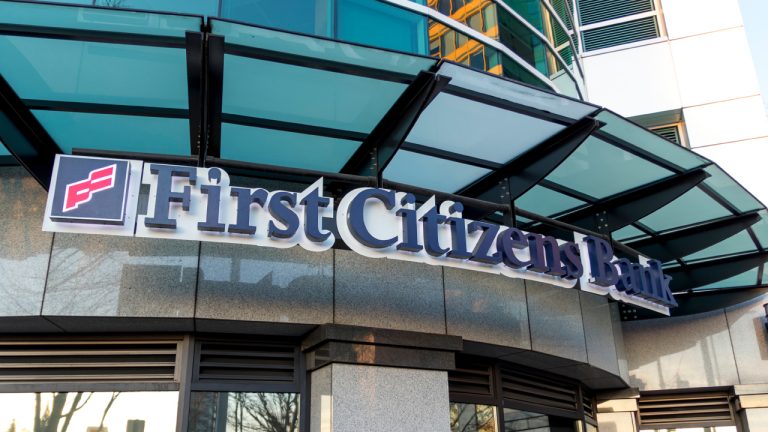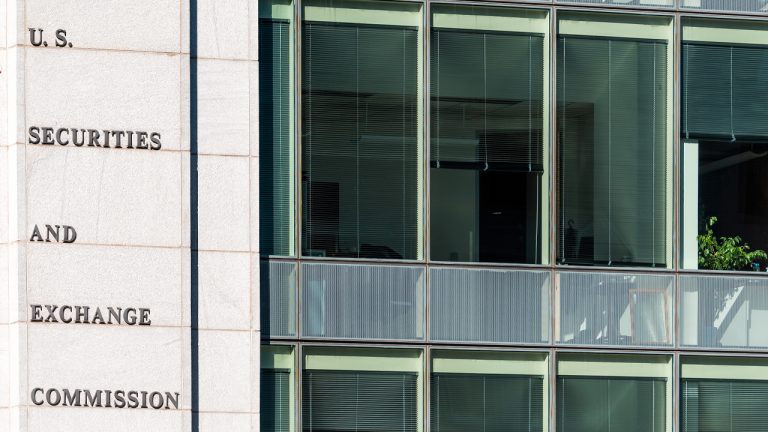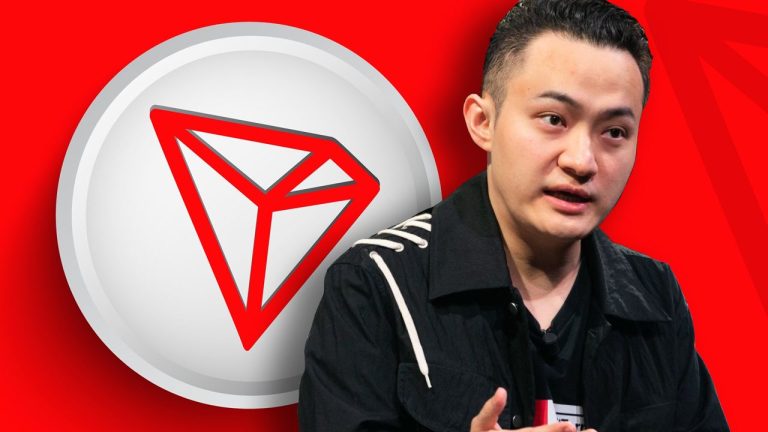 After the report revealing that the cryptocurrency exchange Bittrex had received a Wells Notice from the U.S. Securities and Exchange Commission (SEC), the securities regulator charged Bittrex and the company’s CEO on April 17 for “operating an unregistered exchange, broker, and clearing agency.” Following the Wells Notice, SEC Charges Bittrex for Violating Federal Laws On […]
After the report revealing that the cryptocurrency exchange Bittrex had received a Wells Notice from the U.S. Securities and Exchange Commission (SEC), the securities regulator charged Bittrex and the company’s CEO on April 17 for “operating an unregistered exchange, broker, and clearing agency.” Following the Wells Notice, SEC Charges Bittrex for Violating Federal Laws On […]
“It seems perverse to me that we would be encouraging centralization,” said SEC Commissioner Hester Peirce prior to a vote on the proposal.
The United States Securities and Exchange Commission has announced it will be revisiting the proposed redefinition of an “exchange” under the agency’s rules — a move that could include crypto market participants in decentralized finance, or DeFi.
In an April 14 open meeting with SEC commissioners and staff, SEC Chair Gary Gensler said the proposed rule amendments could benefit investors and markets by bringing certain brokers under additional regulatory scrutiny as well as “modernizing” rules that define an exchange. Under the proposal, an “exchange” would be more closely defined as a system that “bring[s] together buyers and sellers of securities through structured methods to negotiate a trade” and explicitly include DeFi.
“This would account for the evolving nature and electronification of trading platforms in the last 25 years,” said Gensler.

The commission proposed similar amendments in January 2022, keeping the comment period for the public open until June. Some crypto advocacy groups criticized the SEC’s actions at the time, suggesting it was an overreach of the commission’s authority that could jeopardize participation in the space.
Gensler added:
“Given how crypto trading platforms operate today, many of them currently are exchanges regardless of this reopening release we’re considering today. These platforms match orders of multiple buyers and sellers of crypto securities using established non-discretionary methods. That’s the definition of exchange, and today, most crypto trading platforms meet it.”
SEC Commissioner Hester Peirce, also known as “Crypto Mom” by many of her pro-crypto policy positions, raised concerns about the rules regarding trading platforms that do not handle tokens qualifying as securities, or how to address operators that move from securities to non-securities trading. She added there was “so much ambiguity” regarding the SEC’s current treatment of securities.
“It’s possible that operating a system that uses these technologies to perform exchange activities under the proposed rules in a manner that complies with applicable regulations could significantly reduce the extent to which the system is decentralized,” said Peirce. “Have we thought about how forcing centralization would benefit the American public? [...] It seems perverse to me that we would be encouraging centralization.”
Related: US SEC seeks to expand its Crypto Assets and Cyber Unit
Following the meeting, the SEC reiterated that DeFi projects fall under the commission’s current rules. The U.S. Treasury Department also targeted DeFi services in an April 6 warning regarding money laundering and terrorist financing.
The public comment period for the proposed amendment will be open for 30 following publication in the Federal Register.
Magazine: Crypto Wendy on trashing the SEC, sexism, and how underdogs can win
 Economist Nouriel Roubini has shared his opinion about bank problems in the United States in a recently published opinion editorial. In the article, Roubini insists that “most U.S. banks are technically near insolvency, and hundreds are already fully insolvent.” Roubini: ‘Liquidity Support Cannot Prevent This Systemic Doom Loop’ The renowned economist Nouriel Roubini, also known […]
Economist Nouriel Roubini has shared his opinion about bank problems in the United States in a recently published opinion editorial. In the article, Roubini insists that “most U.S. banks are technically near insolvency, and hundreds are already fully insolvent.” Roubini: ‘Liquidity Support Cannot Prevent This Systemic Doom Loop’ The renowned economist Nouriel Roubini, also known […] Court filings reveal that the FTX co-founder is seeking access to a $10 million insurance plan to cover his attorney fees. FTX debtors and unsecured creditors have opposed Sam Bankman-Fried’s request, arguing that every dollar spent on his defense is “one less dollar” available to cover the losses of the debtors. FTX Debtors and Unsecured […]
Court filings reveal that the FTX co-founder is seeking access to a $10 million insurance plan to cover his attorney fees. FTX debtors and unsecured creditors have opposed Sam Bankman-Fried’s request, arguing that every dollar spent on his defense is “one less dollar” available to cover the losses of the debtors. FTX Debtors and Unsecured […] According to the Federal Deposit Insurance Corporation (FDIC), the troubled bank Silicon Valley Bank (SVB) was acquired by First Citizens Bank & Trust Company, which is based in Raleigh, North Carolina. First Citizens acquired all deposits and loans from SVB, as well as the 17 branches that SVB owned across the United States. Silicon Valley […]
According to the Federal Deposit Insurance Corporation (FDIC), the troubled bank Silicon Valley Bank (SVB) was acquired by First Citizens Bank & Trust Company, which is based in Raleigh, North Carolina. First Citizens acquired all deposits and loans from SVB, as well as the 17 branches that SVB owned across the United States. Silicon Valley […] According to a report published by AFP, Do Kwon, CEO of Terraform Labs, has been charged with document forgery in Montenegro. Kwon was arrested at the Podgorica airport while traveling with fake documentation. South Korean prosecutors have said the Terra co-founder faces extradition to South Korea. Montenegro Police’s Account of the Falsified Travel Documents Found […]
According to a report published by AFP, Do Kwon, CEO of Terraform Labs, has been charged with document forgery in Montenegro. Kwon was arrested at the Podgorica airport while traveling with fake documentation. South Korean prosecutors have said the Terra co-founder faces extradition to South Korea. Montenegro Police’s Account of the Falsified Travel Documents Found […]
ARK Invest purchased 269,928 shares in Coinbase on March 23, only two days after it sold $13.5 million, its first sale of Coinbase shares this year.
Cathie Wood’s investment management firm has gone back to buying Coinbase shares again, just a day after COIN’s stock price dipped amid news of its Wells notice.
On March 23, ARK Invest purchased 268,928 Coinbase shares via its ARKK Innovation and ARKW Next Generation Internet exchange-traded funds. The shares wereworth $17.88 million at the time of writing.
Only two days prior, and before the news of the Wells notice broke, ARK Invest sold 160,887 Coinbase shares from its ARK Fintech Innovation ETF. The sale was the first time any of ARK Invest’s ETFs shed Coinbase shares in 2023.
Cathie Wood and Ark Invest's trade activity from today 3/23 pic.twitter.com/yyubxTegZj
— Ark Invest Daily (@ArkkDaily) March 24, 2023
Coinbase’s share price has failed to recover since it shared news it had received a Wells notice warning of possible enforcement action from the Securities and Exchange Commission, which led to COIN shares dropping around 21%.
Shares in Coinbase dipped to a low of $64.27 after trading began on March 23, and at time of writing were trading at $66.87 in after-hours trading, according to Barron’s.

Related: Coinbase CEO on its Wells notice: SEC is like soccer referees in a game of pickleball
Coinbase CEO Brian Armstrong had also sold shares in his firm between March 17 to March 20 — just days prior to the Wells notice and share price dip.
SEC filings indicate, however, that Coinbase executives and insiders all enter into 10B5-1 selling plans months in advance and that this tranche of sales was pursuant to a trading plan adopted on Aug. 16.

While the SEC reached a settlement with crypto exchange Kraken on Feb. 9 after alleging its staking services qualified as securities, Coinbase has repeatedly asserted that its staking products are fundamentally different from Kraken’s and they cannot be universally labeled as securities.
Magazine: Best and worst countries for crypto taxes — Plus crypto tax tips
 2023 is shaping up to be a painful year for the U.S. Securities and Exchange Commission (SEC) as it finds itself entangled in battles with the ever-evolving and innovative cryptocurrency industry. From Ripple to Coinbase and Tron, the SEC faces fierce opposition with potentially huge consequences. The following opinion editorial was written by Joseph Collement, […]
2023 is shaping up to be a painful year for the U.S. Securities and Exchange Commission (SEC) as it finds itself entangled in battles with the ever-evolving and innovative cryptocurrency industry. From Ripple to Coinbase and Tron, the SEC faces fierce opposition with potentially huge consequences. The following opinion editorial was written by Joseph Collement, […] The U.S. Securities and Exchange Commission (SEC) has taken action against Justin Sun, the founder of Tron, and the Tron Foundation, issuing charges for offering unregistered securities and market manipulation. Additionally, a group of influencers have been charged by the organization for promoting tron without disclosing that they were being compensated for their endorsements. Tron […]
The U.S. Securities and Exchange Commission (SEC) has taken action against Justin Sun, the founder of Tron, and the Tron Foundation, issuing charges for offering unregistered securities and market manipulation. Additionally, a group of influencers have been charged by the organization for promoting tron without disclosing that they were being compensated for their endorsements. Tron […]
Primary and secondary markets differ in securities, pricing, risk, volume, liquidity, timeframe and more.
Stock and crypto markets are essential components of the global financial system. These markets provide a platform for investors to buy and sell financial assets, which helps companies raise capital for investment and growth. Moreover, the stock and crypto markets play a crucial role in determining the value of an asset. The market price of a stock or cryptocurrency reflects the collective sentiment of investors about its prospects, which can impact its future growth potential.
Lastly, the stock and crypto markets can be used as indicators of broader economic trends and sentiments. For instance, swings in the stock market can indicate changes in investor perceptions of the health of the economy, whereas moves in the cryptocurrency market can be caused by changes in the law, developments in technology or changes in consumer tastes. Investors can learn more about the state of the economy, potential hazards and investment possibilities by keeping an eye on these markets.
The primary market and the secondary market are the two main categories of markets.
Companies first offer new securities to the public on the primary market, including stocks, bonds and other financial instruments. The primary market’s goal is to help the issuer, whether it be a business, a governmental body or another group, raise money. These securities can be bought directly from the issuer by investors, with the money going to the issuer.
On the other hand, previously issued securities are traded between investors on the secondary market. Instead of purchasing securities directly from the issuer, investors buy and sell securities that have already been issued in this market. The secondary market provides liquidity to investors, allowing them to buy and sell securities quickly and easily. This market is also important for price discovery, as the price of a security is determined by supply and demand factors.
In the cryptocurrency world, the primary market is where new tokens or coins are first offered to the public through initial coin offerings (ICOs) or initial exchange offerings (IEOs). The secondary market, on the other hand, is where previously issued cryptocurrencies are traded among investors. An example of the secondary market in crypto is the cryptocurrency exchange Binance, where investors can buy and sell various cryptocurrencies, such as Bitcoin (BTC), Ether (ETH) and others.
Buying and Selling
— Henry Imani (@henryimani_) January 13, 2022
NFTs can be traded at a fixed price or through an auction.
Trading of NFTs always happens in 2 markets; the primary market (minting website) and the secondary market (NFTs marketplace).
Related: Fundraising 101: A beginners guide on raising funds using cryptocurrencies
There are several key differences between primary and secondary markets.
The primary market is where new securities are issued for the first time, while the secondary market is where previously issued securities are traded between investors.
In the primary market, securities are issued directly by the issuer, whether it’s a company, government entity or other organization. In the secondary market, investors trade securities among themselves without involvement from the issuer.
On the primary market, the price of a security is typically set by the issuer, based on factors such as market demand, supply and the company’s financials. On the secondary market, the price of a security is determined by supply and demand factors, with investors buying and selling based on their own perceptions of the value of the security.
The primary market carries a higher risk for investors, as the securities being issued are new and have not yet been tested in the market. In contrast, the secondary market carries a lower risk, as investors can evaluate the performance and stability of the security before deciding to buy or sell.
Related: The NFT marketplace: How to buy and sell nonfungible tokens
The primary market typically has a lower trading volume compared to the secondary market, as securities are issued on a limited basis. The secondary market, on the other hand, has a high trading volume, as investors buy and sell securities on a daily basis.
The primary market has limited liquidity, as investors cannot easily sell newly issued securities until they are listed on the secondary market. In contrast, the secondary market is highly liquid, as investors can buy and sell securities on an ongoing basis.
The primary market is generally open for a limited period of time, as securities are issued on a specific date or over a limited period. The secondary market, on the other hand, is open continuously, allowing investors to buy and sell securities at any time.